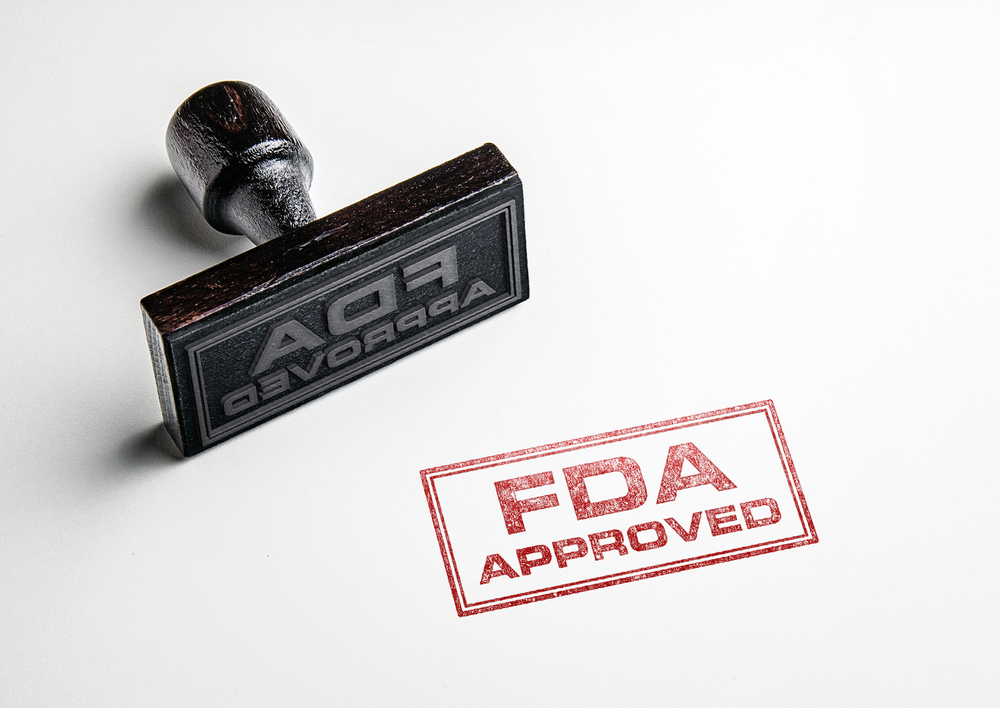FDA Approves Darzalex Triple Combo for Advanced Multiple Myeloma

The U.S. Food and Drug Administration (FDA) has approved Darzalex (daratumumab), in combination with Kyprolis (carfilzomib) and dexamethasone, to treat adults with relapsed or refractory multiple myeloma after one to three lines of therapy.
Specifically, Darzalex — created by Genmab, and developed and commercialized by Janssen Pharmaceuticals — was approved in combination with two dosing regimens of Kyprolis (developed by Amgen): 70 mg/m2 once weekly, and 56 mg/m2 twice weekly.
The approval comes six months after Janssen submitted a supplemental biologics license application to extend Darzalex’s label.
This is the eighth Darzalex treatment regimen approved in the U.S. for multiple myeloma patients, and the fifth in the relapsed or refractory setting. Darzalex is now the first anti-CD38 antibody approved for use in combination with Kyprolis.
“With this most recent approval of the DKd [Darzalex-Kyprolis-dexamethasone] regimen, patients with multiple myeloma now have the option to receive treatment with Darzalex and [Kyprolis] as early as their first relapse, which is a critical time in their treatment journey,” Craig Tendler, MD, vice president of Janssen’s late development and global medical affairs for oncology, said in a press release.
“Despite ongoing advances in the treatment of multiple myeloma, the disease remains incurable and is especially challenging for patients who relapse or become refractory to established therapies,” Saad Z. Usmani, MD, said in a separate press release. Usmani is the director of clinical research in hematologic malignancies, division chief of plasma cell disorders, and a clinical professor of medicine at Atrium Health’s Levine Cancer Institute in North Carolina.
“As a clinician, having the DKd regimen as an option means we can now combine two efficacious, targeted agents in a new, immunomodulatory drug-free triplet regimen that has demonstrated deep and durable responses for patients upon relapse,” Usmani added.
Darzalex and Kyprolis are targeted therapies with distinct mechanisms of action.
Darzalex is an antibody that binds to and blocks the activity of CD38, a protein prevalent on the surface of myeloma cells, regardless of disease severity. When bound to its target, the therapy works both to kill cancer cells directly and to trigger immune responses against them.
Kyprolis is a proteasome inhibitor — a treatment that allows defective proteins to accumulate within cells, leading to their death — used to treat multiple myeloma patients. It preferentially affects fast-growing cells, such as cancer cells, which are more prone to collect high amounts of faulty proteins.
The approval of the triple combo was based on findings from the CANDOR Phase 3 (NCT03158688), co-sponsored by Amgen and Janssen, and Janssen’s EQUULEUS Phase 1b trial (NCT01998971).
CANDOR is comparing the safety and effectiveness of DKd combo versus Kyprolis and dexamethasone (Kd) alone in 466 people with relapsed or refractory multiple myeloma who previously received one to three lines of therapy. It is due to be completed in July 2022, but primary data was collected in 2019. (Kyprolis’ twice weekly regimen was administered in this study.)
The trial’s main goal was to assess patients’ progression-free survival (PFS), or the time patients live without disease progression. Key secondary goals included overall response rate, minimal residual disease (MRD) negativity (no detectable disease), and overall survival.
Latest results at a median follow-up of 17 months showed that adding Darzalex lowered the risk of disease progression or death by 37%, and doubled the number of complete responses (28.5% vs. 10.4%), compared with Kyprolis and dexamethasone (Kd group) alone.
At 12 months, nearly 10 times more patients given the DKd combo therapy (12.5%) showed MRD negativity, compared with those in the Kd group (1.3%).
DKd combo’s safety profile was generally consistent with the known safety profiles of each individual therapy.
The most frequent treatment-related side effects were infusion-related reactions, low red blood cell counts (anemia), fatigue, high blood pressure, fever, upper respiratory tract infection, low platelet counts, low levels of different types of white blood cells, cough, shortness of breath, insomnia, headache, and back pain.
Serious, life-threatening, and fatal events were more common in the Darzalex group (82.1%) than in the Kd group (73.9%), but the rate of treatment discontinuation due to adverse events was similar between the two groups (22.4% vs. 24.8%).
“With our deep disease focus and commitment to develop regimens which can help improve patient outcomes for patients with relapsed multiple myeloma, the CANDOR study further establishes another Darzalex-containing regimen (DKd) which may provide benefit for this patient population,” Tendler said.
Data from the open-label, multi-group EQUULEUS trial, which is evaluating Darzalex in combination with multiple treatment regimens for multiple myeloma, served as the basis for approval of the once-weekly Kyprolis regimen.
The DKd combination was tested in 85 patients with relapsed or refractory multiple myeloma who had had at least one to three lines of therapy. Kyprolis was given in a once-weekly dosing regimen, with a starting dose of 20 mg/m2, increased to 70 mg/m2 from day 8 of cycle one onward.
At a median follow-up of 16.6 months, 81% of patients responded to treatment for a median of 27.5 months. Among responders, 14% achieved complete responses and 21% had stringent complete responses (a deeper category of complete responses).
“This expanded approval for Kyprolis demonstrates a leap forward in the treatment paradigm for this complex disease by combining two potent agents in their respective drug classes indicated for patients with relapsed or refractory multiple myeloma,” said David M. Reese, MD, Amgen’s executive vice president of research and development.
Amgen has submitted approval applications globally, seeking to expand Kyprolis’ use to include in combination with Darzalex and dexamethasone for the same patient group.
EQUULEUS’ data also previously supported the approval of a new Darzalex’s dosing regimen in the U.S. and Europe, allowing doctors to split the first infusion over two consecutive days.






